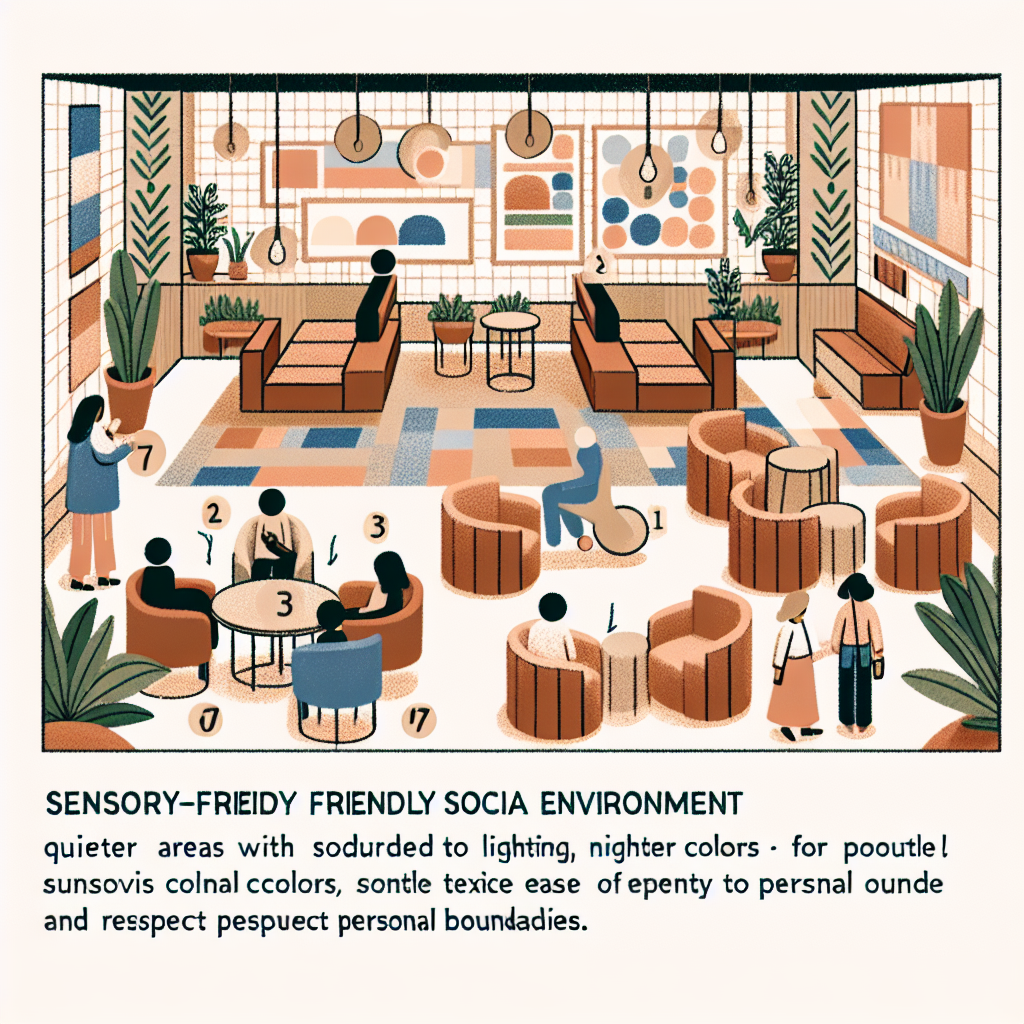Sensory health is a fundamental aspect of our overall well-being that impacts our daily lives and social interactions in profound ways. It encompasses the ability to process and respond to sensory input from our environment, which includes sight, hearing, touch, taste, and smell. Effective sensory health allows individuals to navigate their surroundings safely and comfortably, engage in meaningful activities, and maintain social connections. In contrast, sensory health challenges can lead to difficulties in social engagement, communication, and participation in community life.
Understanding Sensory Health
Sensory health is a complex interplay between the body’s sensory systems and the brain. The sensory systems provide critical information about the environment, while the brain interprets this information to guide our responses and behaviors. A well-functioning sensory system is crucial for developing social skills and building relationships. For more detailed information about sensory health, Avix Health provides a comprehensive overview.
The Role of Sensory Processing in Social Interactions
Sensory processing is the way our nervous system interprets sensory information and turns it into appropriate motor and behavioral responses. When sensory processing is efficient, it supports our ability to interact with others by helping us understand and respond to social cues. For instance, recognizing the tone of voice, facial expressions, and body language is integral to effective communication. However, those with sensory processing disorders may struggle with these aspects of social interaction, often leading to misunderstandings and social isolation.
Sensory Challenges and Social Engagement
Sensory processing challenges, such as those experienced by individuals with autism spectrum disorder (ASD), can significantly impact social interactions. For example, hypersensitivity to sensory stimuli can make crowded or noisy environments overwhelming, leading to avoidance of social gatherings. On the other hand, hyposensitivity may result in a lack of awareness of personal space or social norms, potentially causing discomfort in others.
To address these challenges, sensory-friendly events and conferences are becoming more prevalent, providing inclusive environments where individuals with sensory sensitivities can participate in social activities without feeling overwhelmed.
Sensory Health and Communication
Effective communication is a two-way process that requires not only the ability to express oneself but also the ability to listen and interpret the messages being received. Sensory impairments, such as hearing loss or vision problems, can impede this process. For those with hearing difficulties, engaging in conversations in noisy environments can be challenging, while those with visual impairments may miss out on non-verbal cues that are critical to understanding the context of a conversation.
To support communication among individuals with sensory impairments, technologies such as hearing aids, cochlear implants, and visual aids play a significant role. Additionally, advancements in sensory therapy for adults are helping to improve communication abilities and social participation.
Sensory Health and Emotional Well-being
Sensory experiences are closely linked to emotional responses. Pleasant sensory experiences can evoke positive emotions, while unpleasant ones can lead to distress or anxiety. For individuals with sensory processing issues, the emotional impact of sensory stimuli can be intensified, affecting their mood and social interactions.
Research has shown that creating multisensory environments that cater to individual sensory preferences can enhance emotional well-being and social engagement. By incorporating elements such as calming colors, textures, and sounds, these environments promote a sense of comfort and safety that can facilitate social interaction. Explore the benefits of multisensory learning environments to learn more about how they contribute to emotional and social development.
Strategies for Improving Sensory Health and Social Interactions
There are several strategies that can be employed to improve sensory health and, consequently, social interactions:
- Sensory Diets: Tailored activities that provide sensory input to help individuals regulate their sensory system. For more information, consider reading about sensory diets and their benefits.
- Occupational Therapy: Occupational therapists can help individuals with sensory processing challenges develop coping strategies and improve their social skills. The role of occupational therapy in sensory health is a valuable resource for understanding this approach.
- Assistive Technology: Devices and software that support individuals with sensory impairments to communicate and interact with their environment more effectively.
- Education and Awareness: Educating the public about sensory health challenges can foster empathy and create more inclusive social spaces.
- Policy and Advocacy: Advocating for policies that promote accessibility and inclusivity can help remove barriers to social participation for those with sensory health challenges.
External Resources for In-Depth Understanding
To further explore the impact of sensory health on social interactions and the strategies to address them, the following external resources provide valuable insights:
- Sensory Integration Education – A resource for understanding sensory processing and integration techniques.
- The STAR Institute – A leading organization in research, education, and advocacy for Sensory Processing Disorder.
- The American Occupational Therapy Association – Offers resources on the benefits of occupational therapy for sensory health.
- Hearing Loss Association of America – Provides support and resources for individuals with hearing loss.
- VisionAware – Offers support and resources to help adults who are losing their sight.
In conclusion, sensory health plays a critical role in shaping our social experiences and relationships. By recognizing the importance of sensory processing and supporting those with sensory health challenges, we can create a more inclusive society where everyone has the opportunity to engage fully in social life.



